This document provides an introduction and overview of structural pattern matching in Python. It discusses how pattern matching can be considered as switch statements on steroids, and demonstrates various pattern matching techniques including matching specific values, sequences, objects, attributes, enums, mappings, adding conditions, and more. Examples are provided throughout to illustrate each technique. The document is intended to help explain the capabilities and usage of Python's new pattern matching feature.





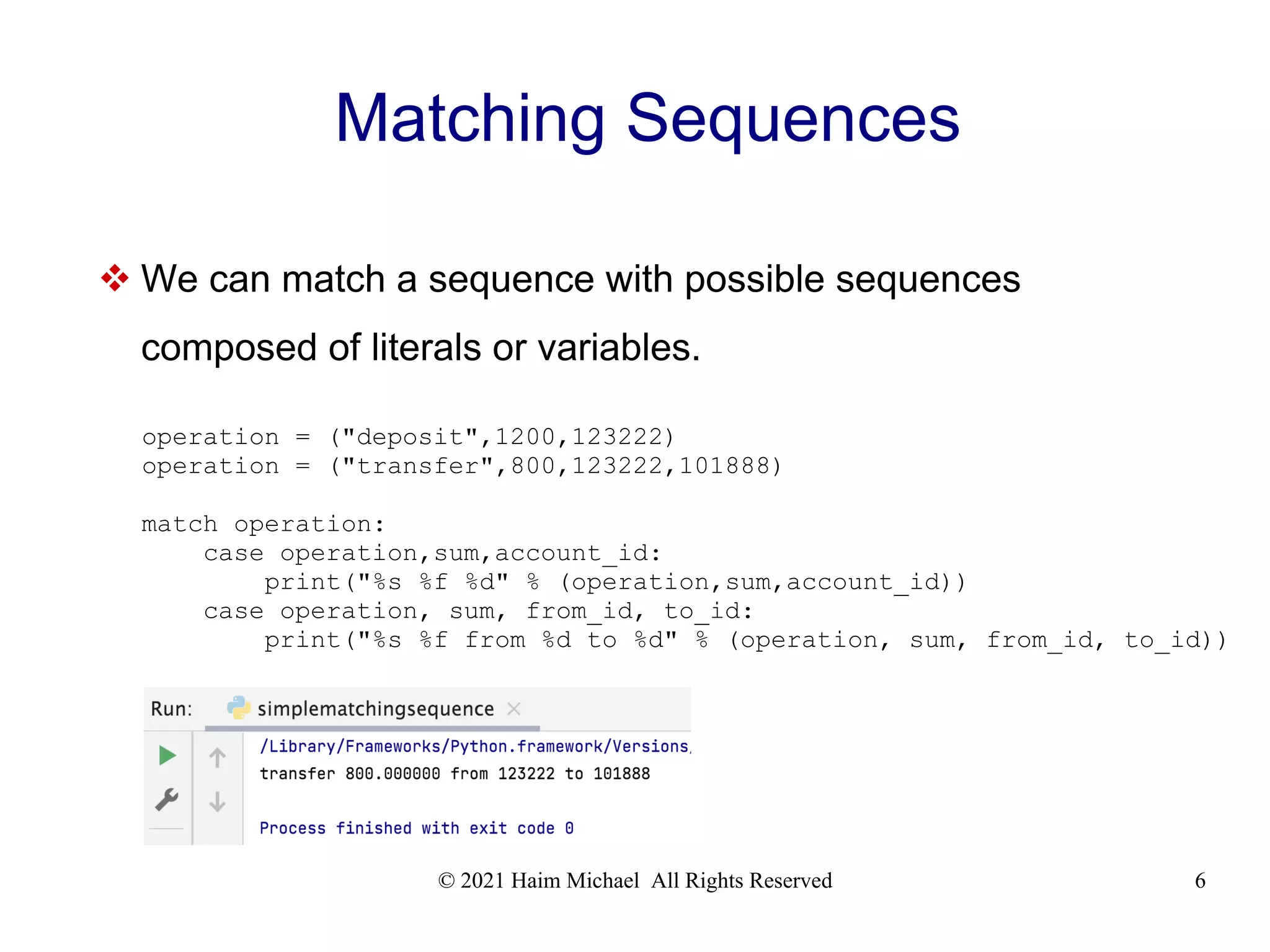
![© 2021 Haim Michael All Rights Reserved 7 Matching Sequences operation = ["playing","pacman"] match operation: case ["eat",food]: print("eating %s is great" % (food,)) case ["watching",show]: print("enjoy watching %s" % (show,)) case ["playing",game]: print("playing %s is awesome" % (game,)) case _: print("your operation cannot be recognized")](https://image.slidesharecdn.com/pythonstructuralpatternmatching20220920-220921125532-0584b460/75/Structural-Pattern-Matching-in-Python-7-2048.jpg)


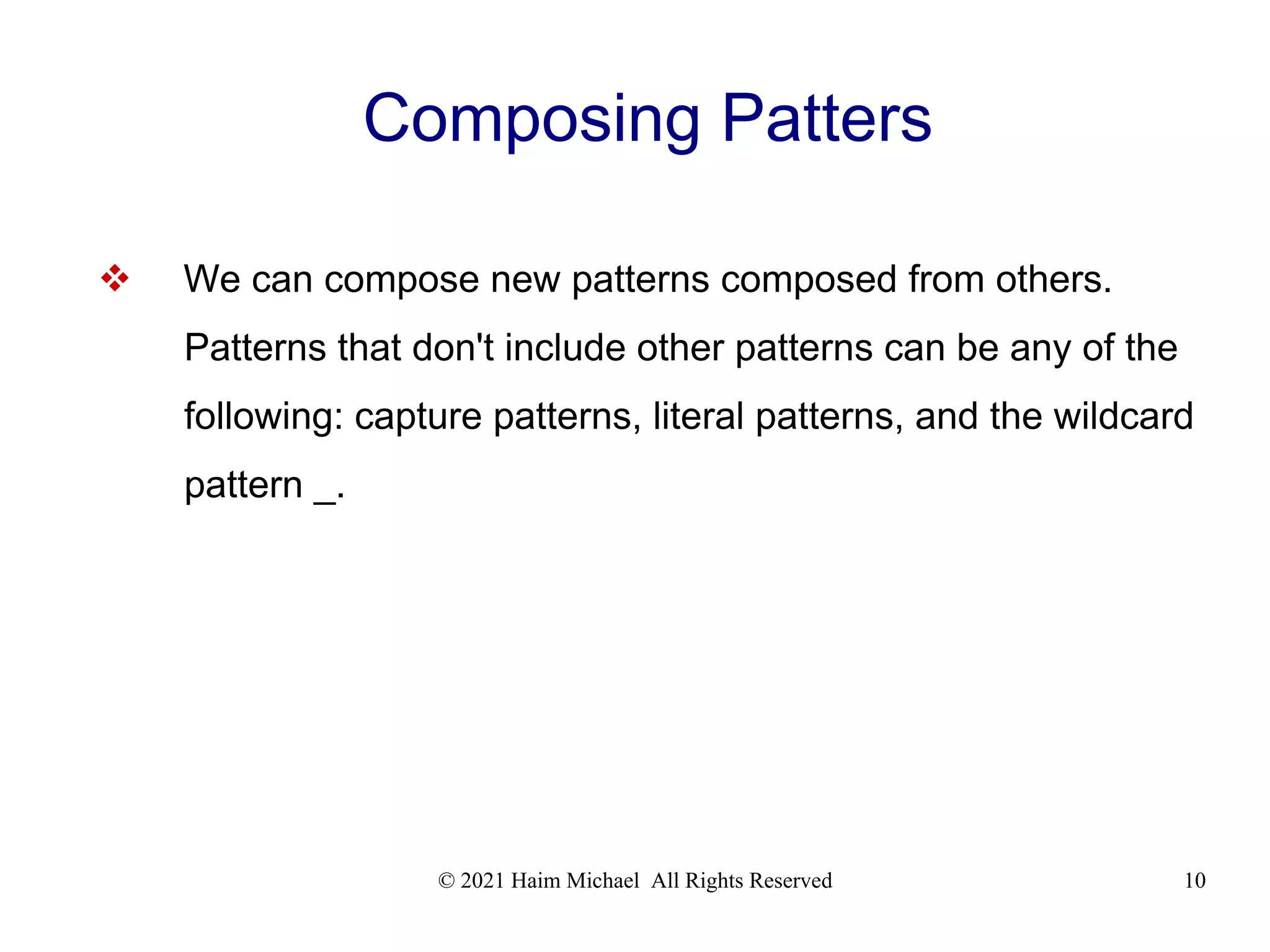

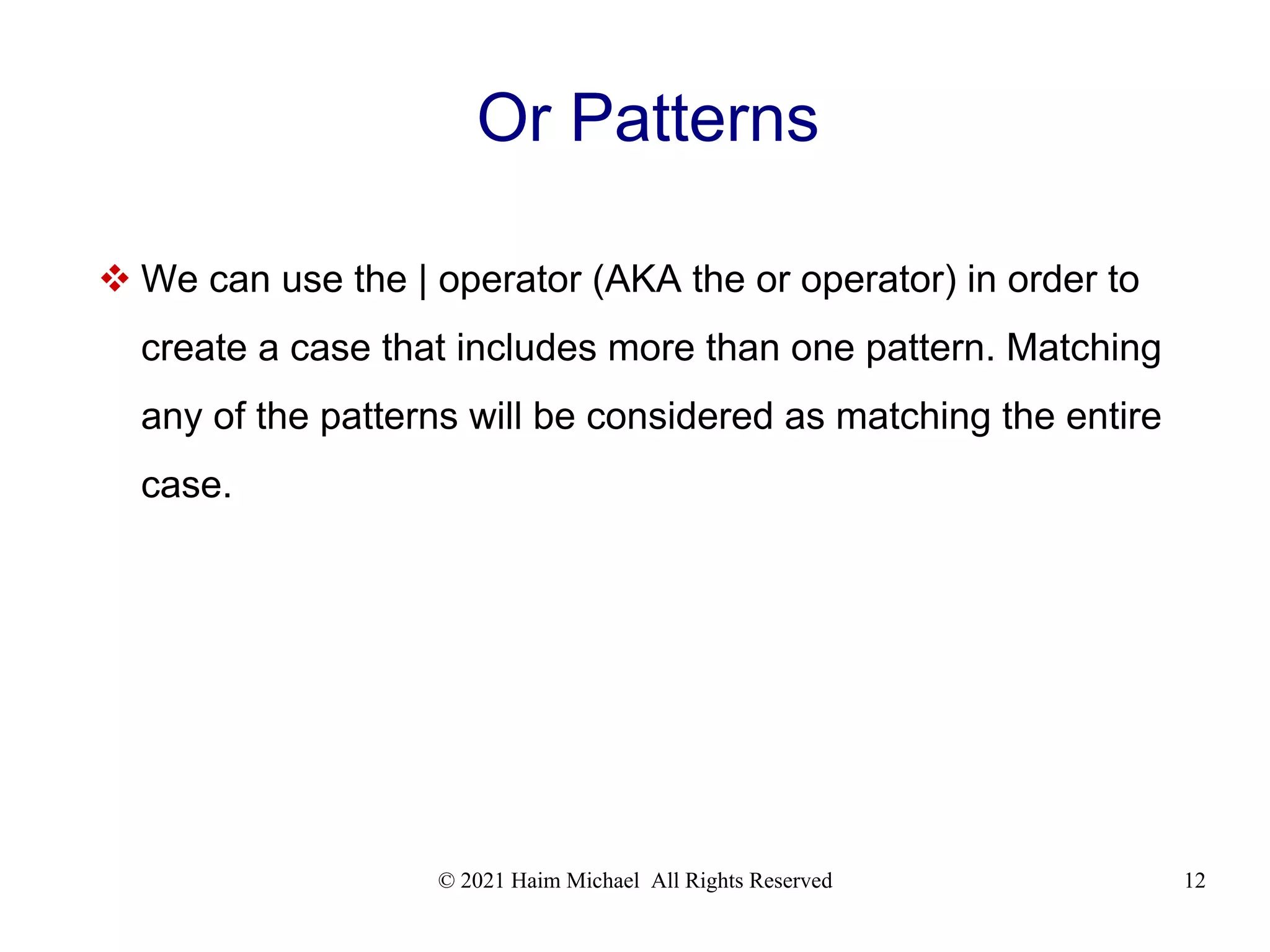
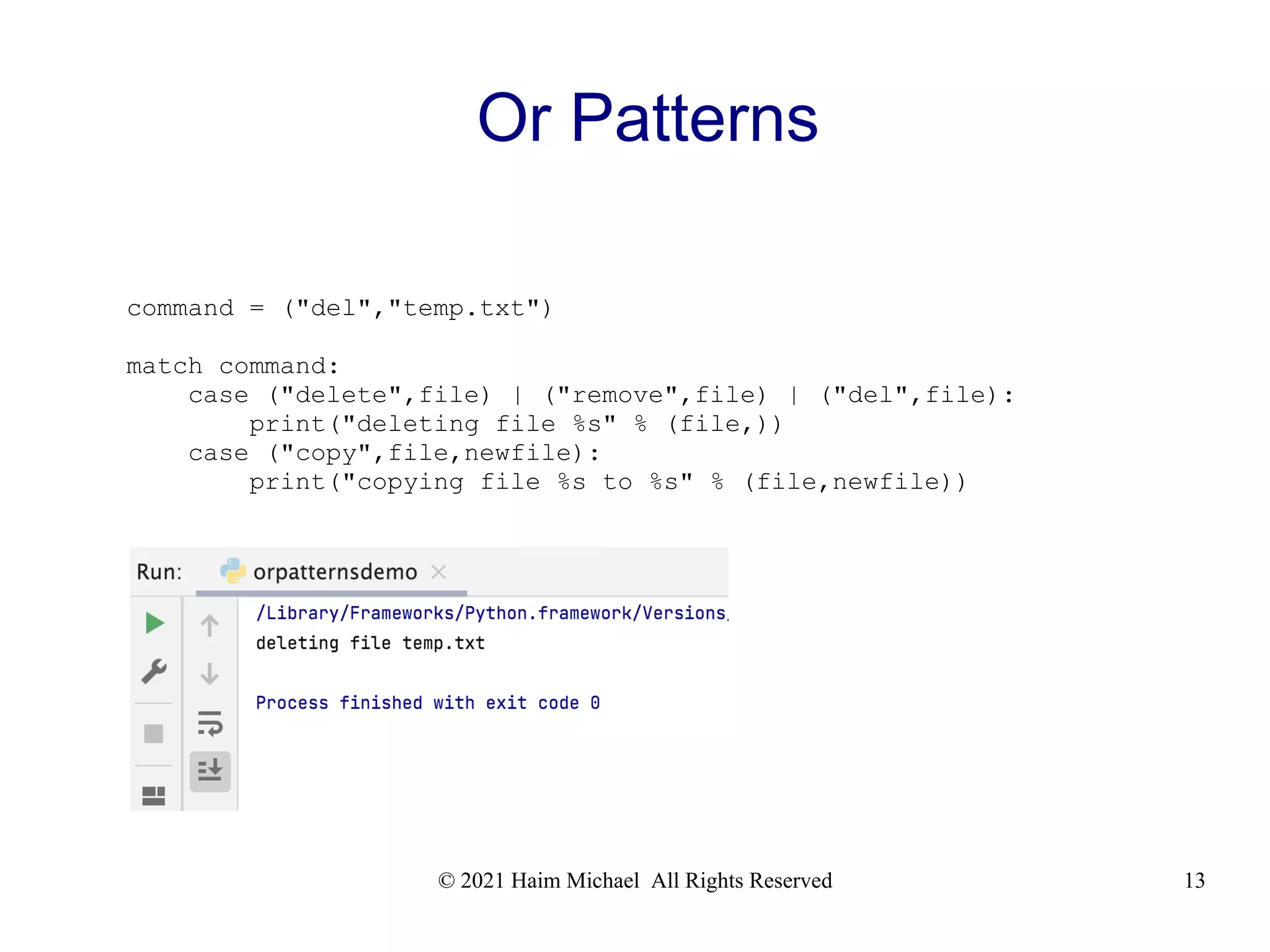


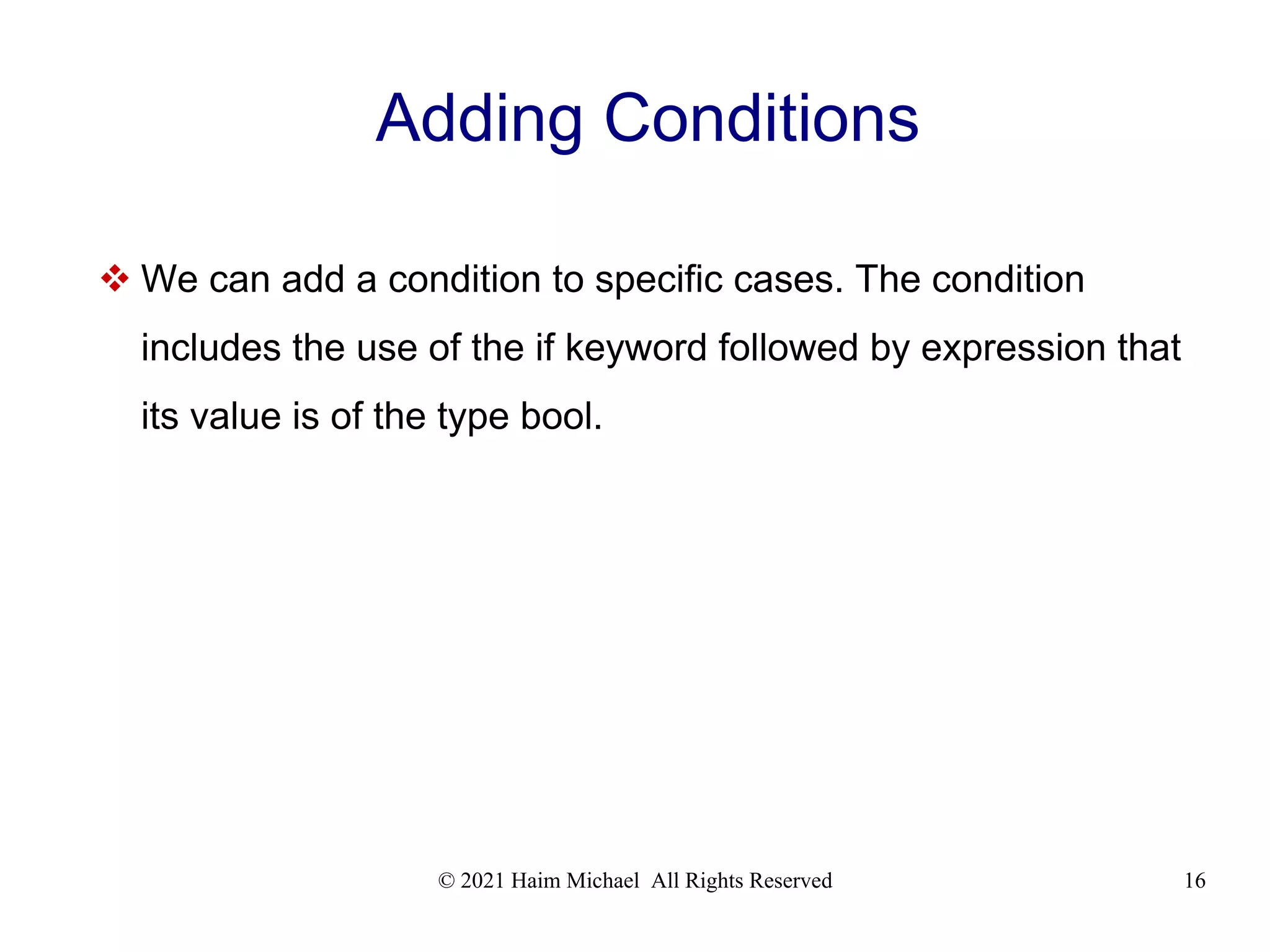
![© 2021 Haim Michael All Rights Reserved 17 Adding Conditions data = ("del","temp.txt") files = ["readme.txt", "temp.txt", "index.txt"] match data: case (("delete" | "remove" | "del") as command, file) if file in files: print("deleting file %s" % (file,)) print("command=%s" % (command,)) case (("delete" | "remove" | "del") as command, file) if file not in files: print("the file %s cannot be deleted" % file) case ("copy",file,newfile): print("copying file %s to %s" % (file,newfile))](https://image.slidesharecdn.com/pythonstructuralpatternmatching20220920-220921125532-0584b460/75/Structural-Pattern-Matching-in-Python-17-2048.jpg)
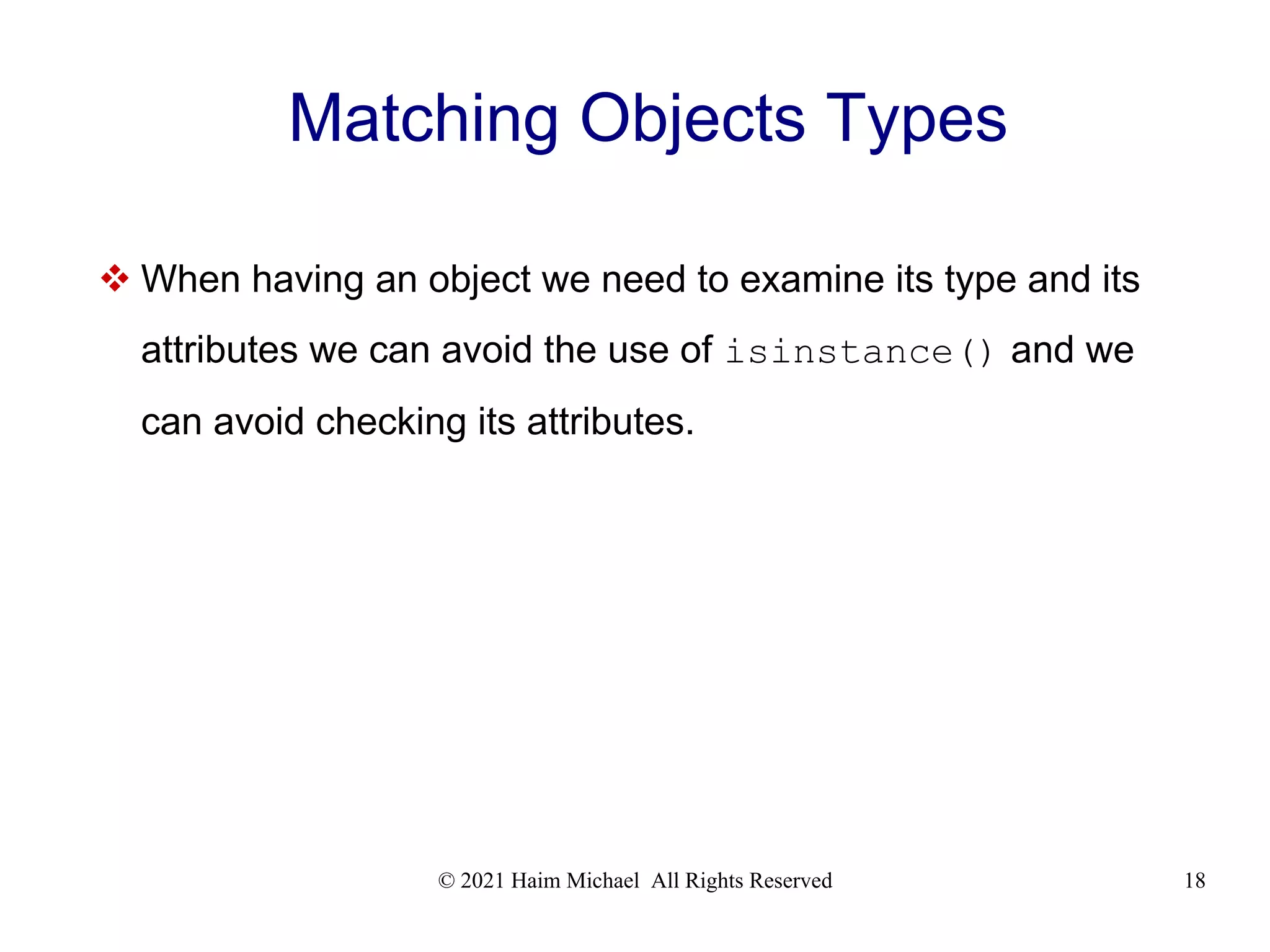

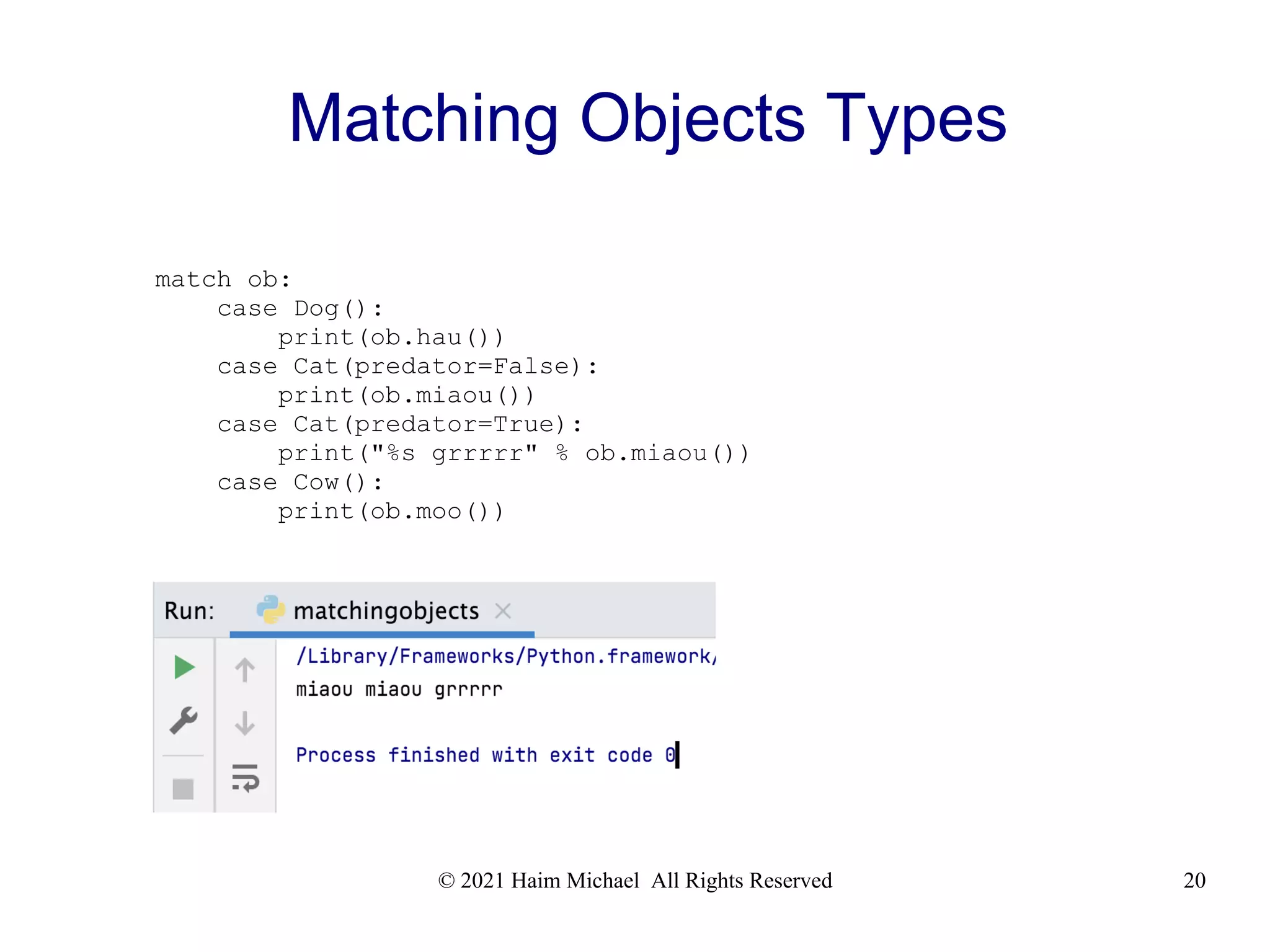
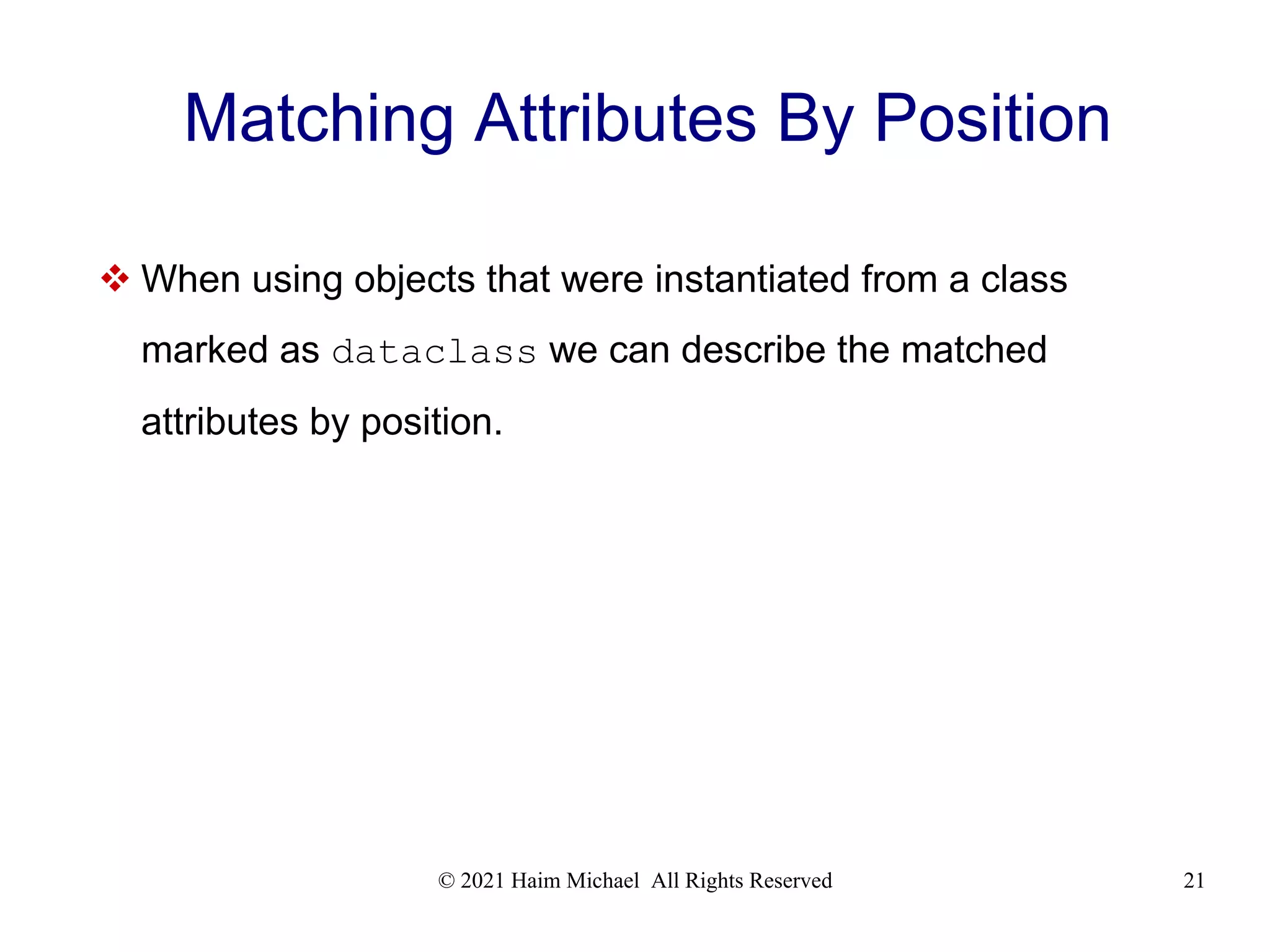


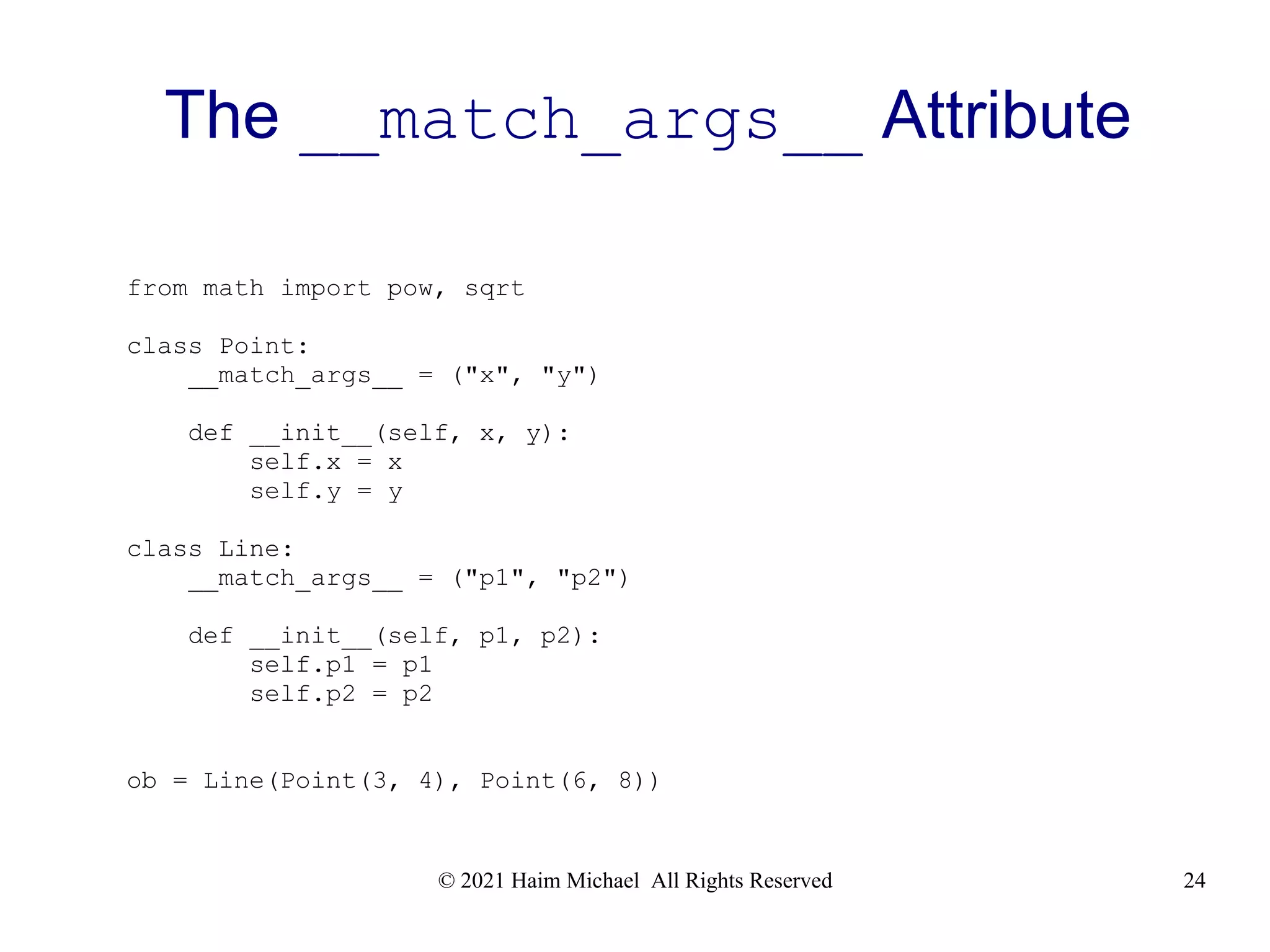

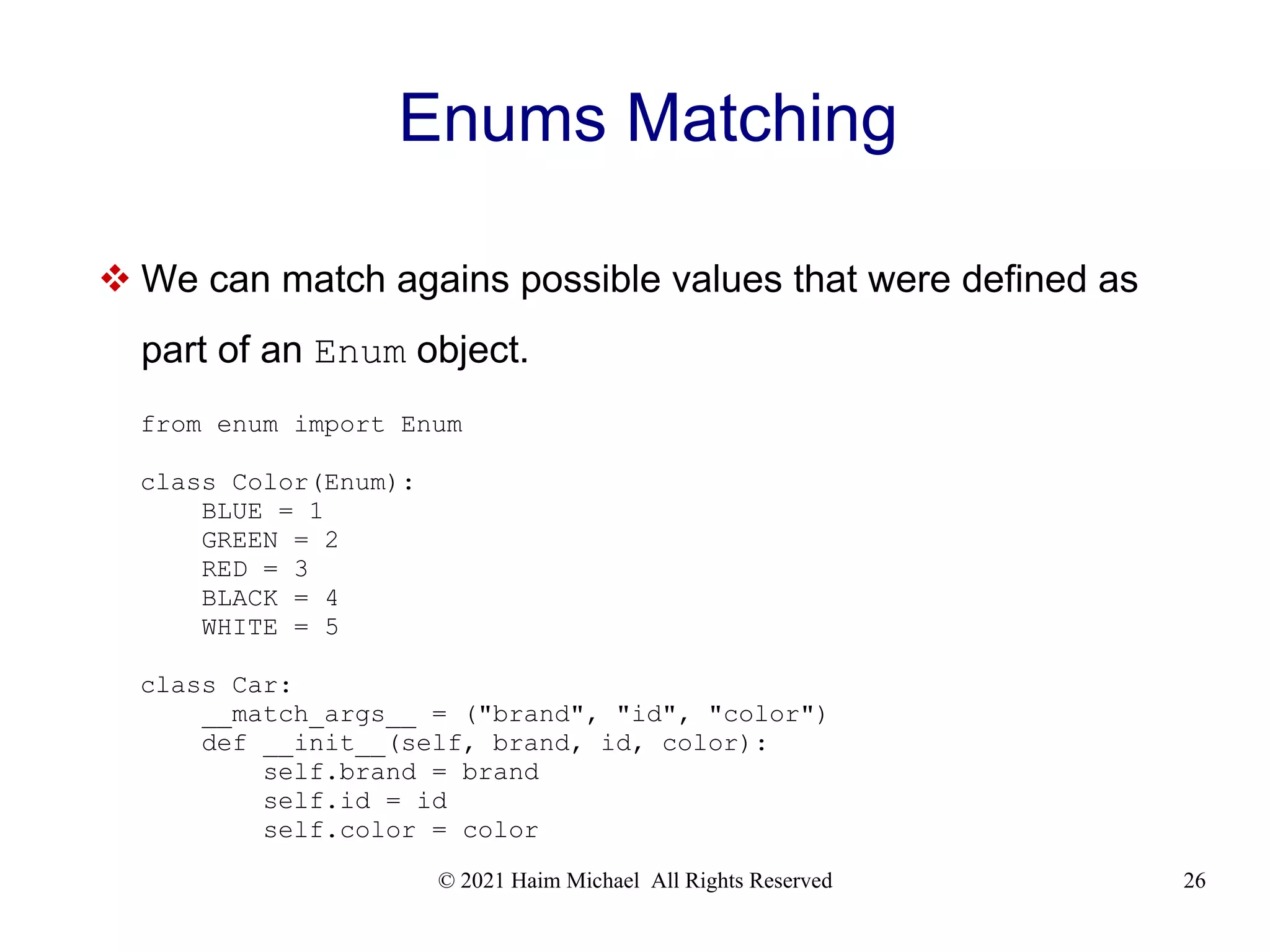

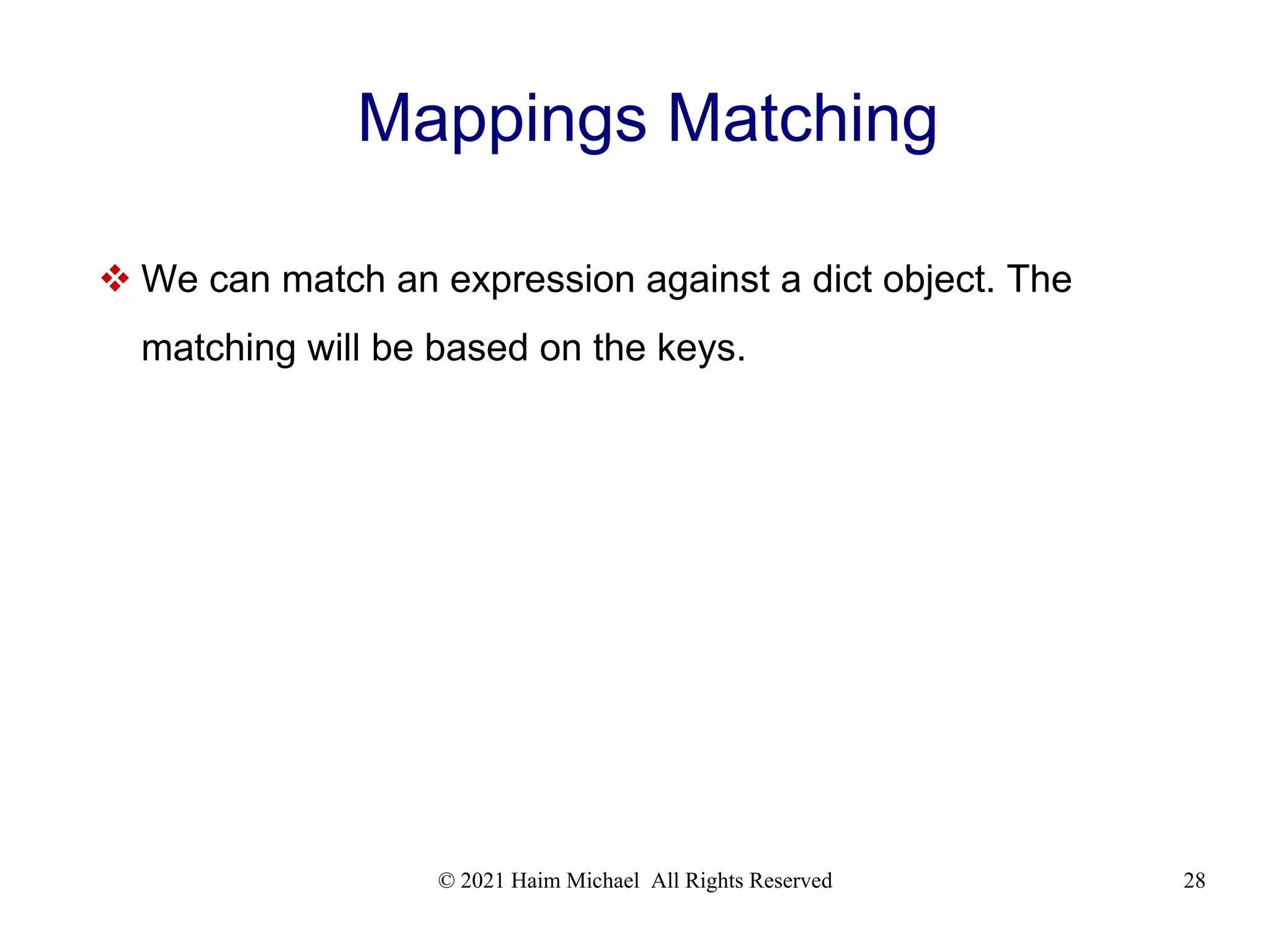
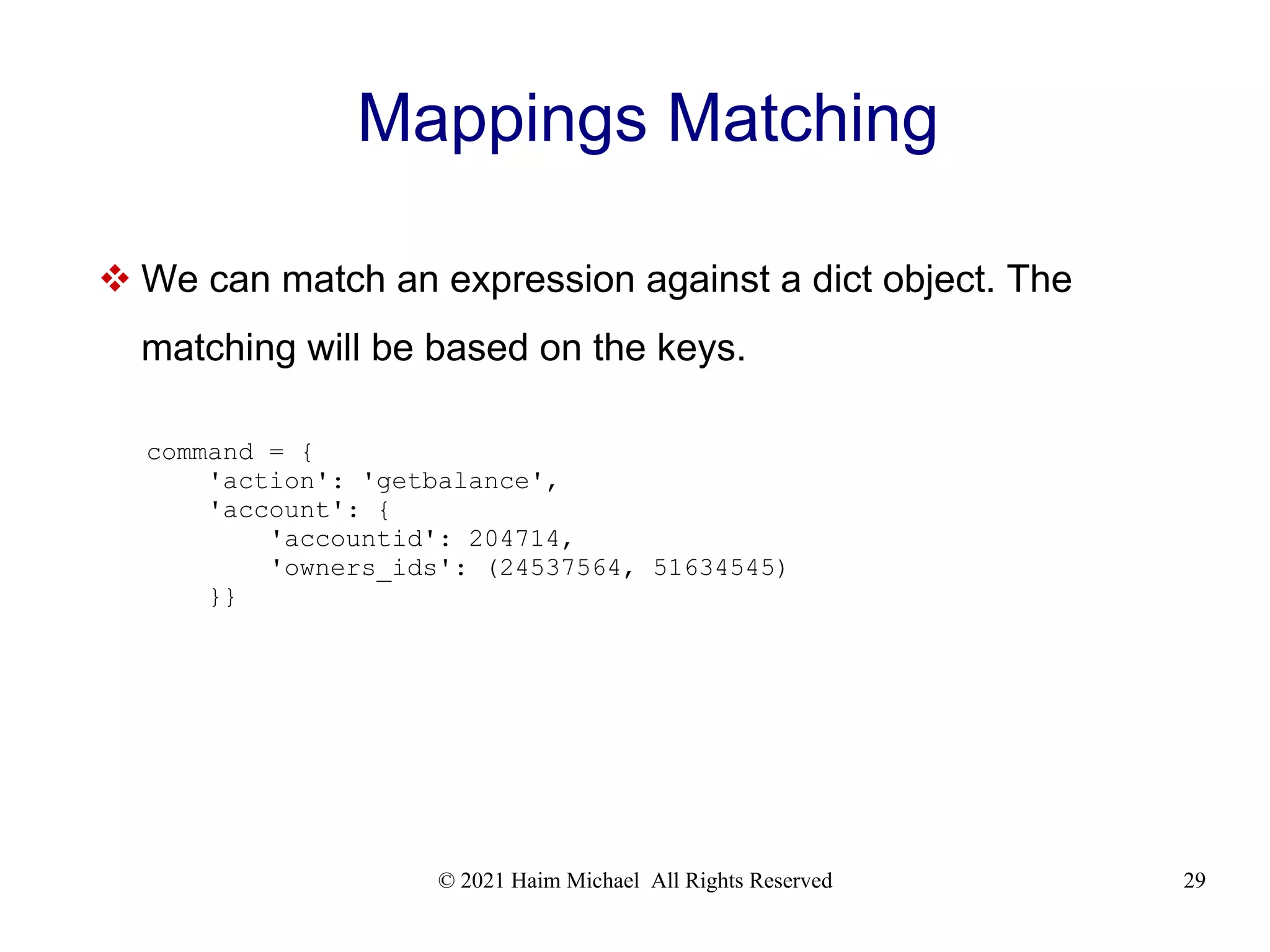
![© 2021 Haim Michael All Rights Reserved 30 Mappings Matching match command: case {'action': 'getbalance', 'account': account}: print("getting balance") print("account id: %s" % (account['accountid'],)) print("account owners are:") print(account['owners_ids']) case {'action': 'deposit', 'sum': sum, 'account': account}: print("deposit %f" % sum) print("account id: %s" % (account,)) print("account owners are:") print(account['owners_ids'])](https://image.slidesharecdn.com/pythonstructuralpatternmatching20220920-220921125532-0584b460/75/Structural-Pattern-Matching-in-Python-30-2048.jpg)
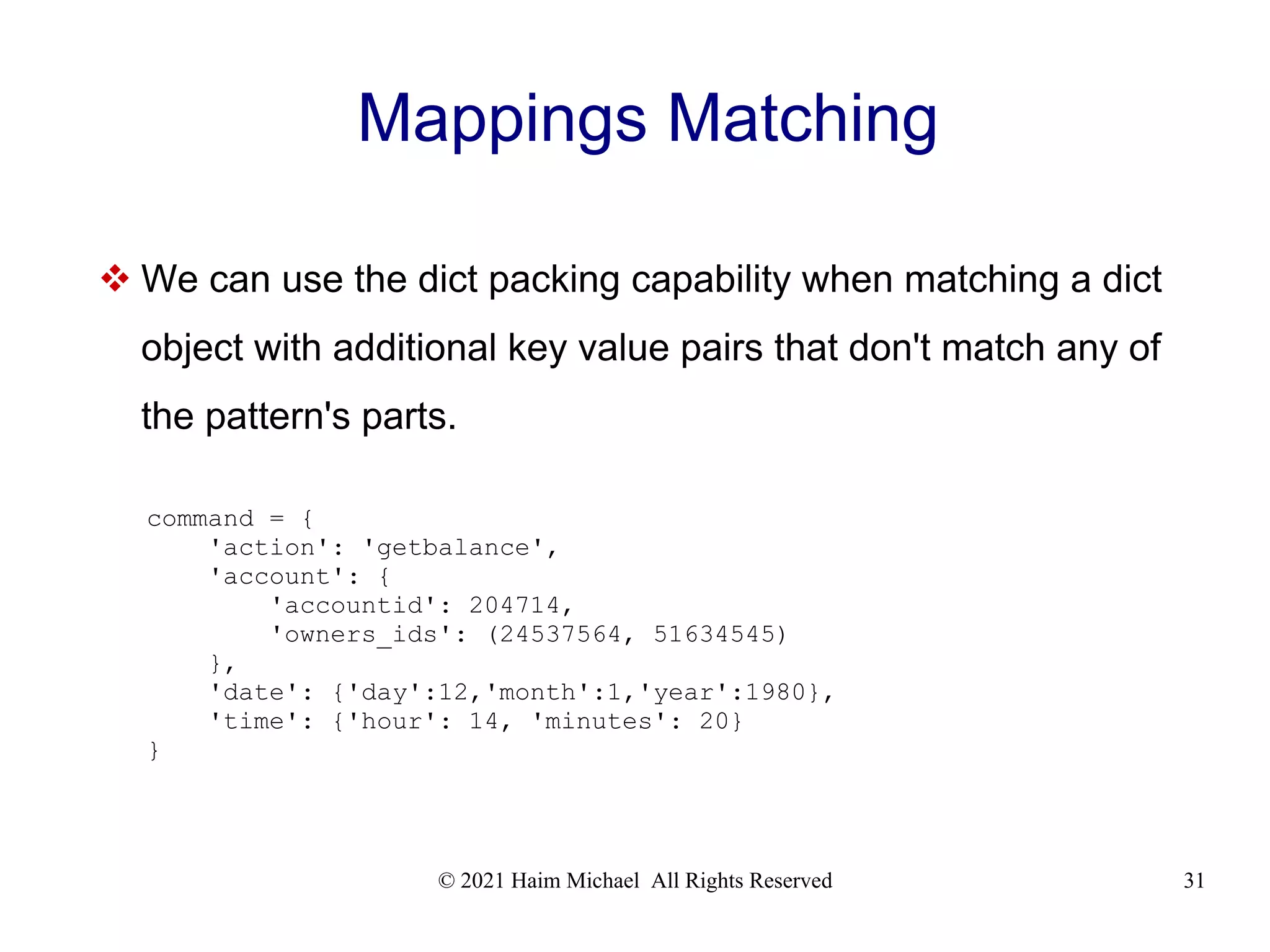
![© 2021 Haim Michael All Rights Reserved 32 Mappings Matching match command: case {'action': 'getbalance', 'account': account, **ob}: print("getting balance") print("account id: %s" % (account['accountid'],)) print("account owners are:") print(account['owners_ids']) print(ob) case {'action': 'deposit', 'sum': sum, 'account': account, **ob}: print("deposit %f" % sum) print("account id: %s" % (account,)) print("account owners are:") print(account['owners_ids']) print(ob)](https://image.slidesharecdn.com/pythonstructuralpatternmatching20220920-220921125532-0584b460/75/Structural-Pattern-Matching-in-Python-32-2048.jpg)
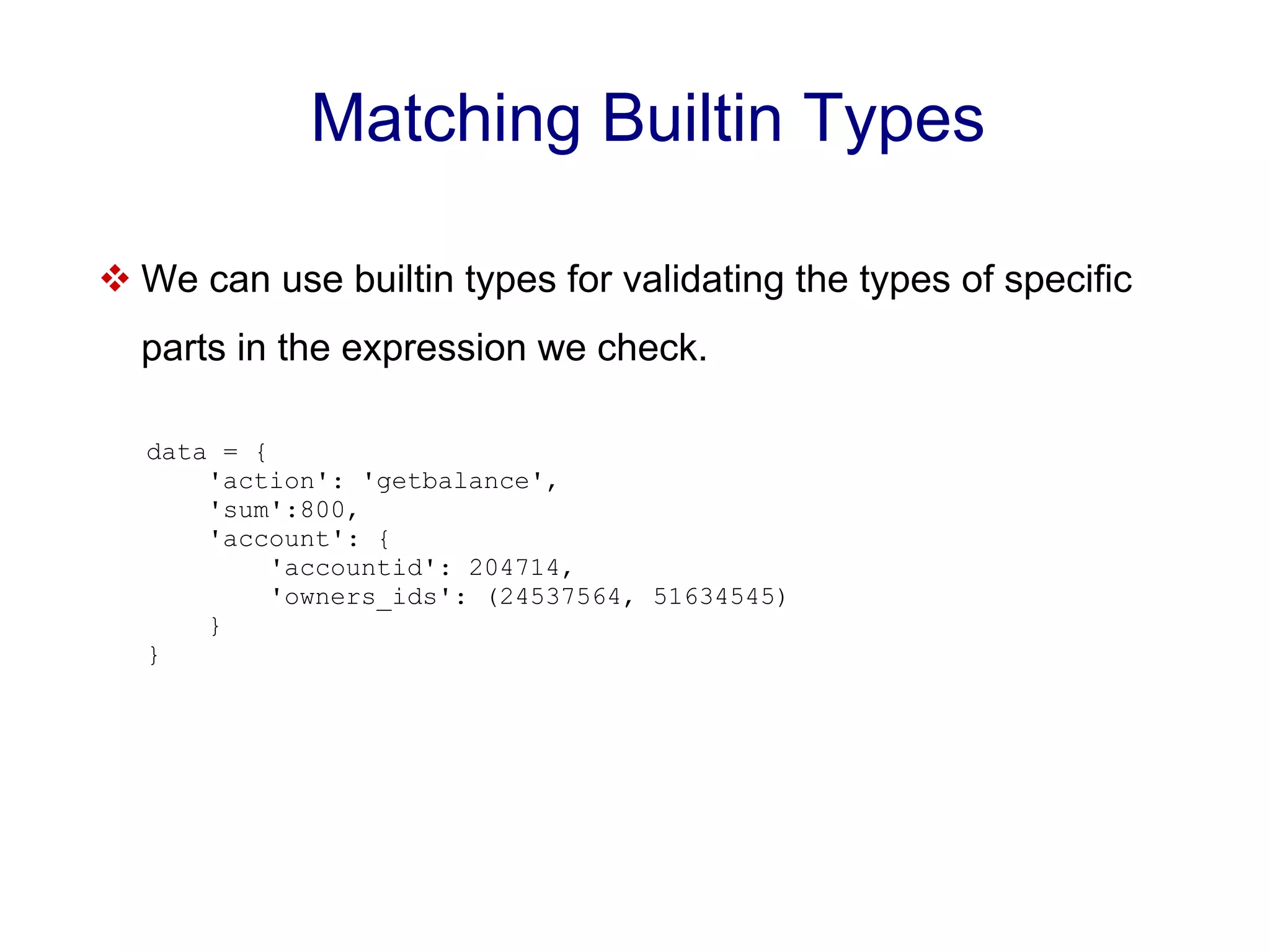
![Matching Builtin Types match data: case {'action': str() as action, 'account': account}: print(action) print("account id: %s" % (account['accountid'],)) print("account owners are:") print(account['owners_ids']) case _: print(data)](https://image.slidesharecdn.com/pythonstructuralpatternmatching20220920-220921125532-0584b460/75/Structural-Pattern-Matching-in-Python-34-2048.jpg)
